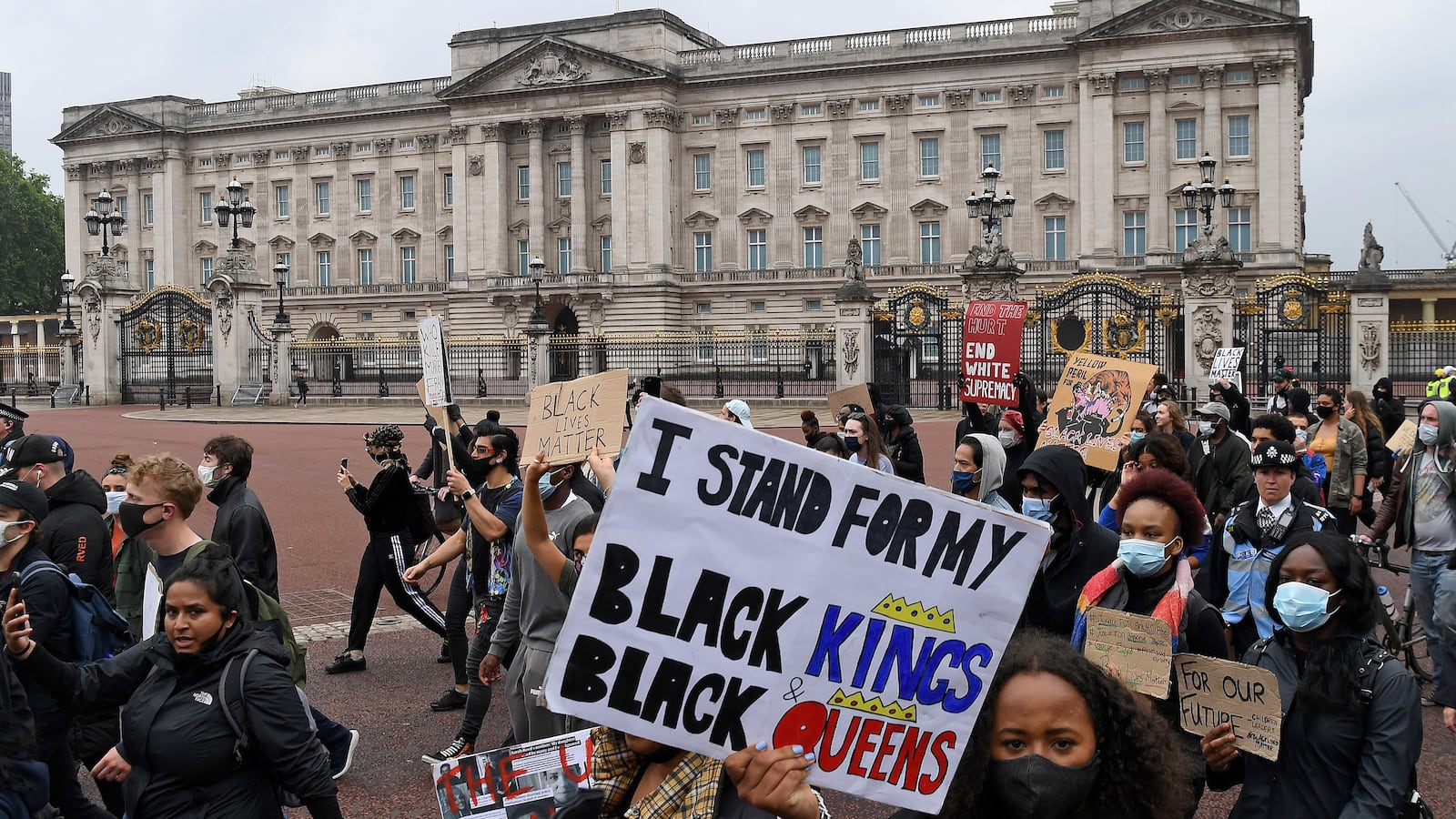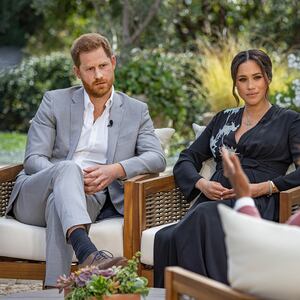Less than three months ago, Meghan Markle and Prince Harry accused an unnamed member of the royal family of having asked a racist question about the likely color of any of their then-unborn children’s skin.
In response, Prince William told reporters, “We are very much not a racist family.”
However, British newspaper the Guardian today revealed that the monarchy has explicitly employed racist hiring practices and that it continues to claim a special exemption from British equality legislation.
The smoking gun is a 1968 letter from a civil servant—which the Guardian found in Britain’s national archives—saying that “it was not, in fact, the practice to appoint colored immigrants or foreigners” to “clerical and office posts” at Buckingham Palace, although such people were considered for lower status “ordinary domestic posts.”
If defenders of the monarchy planned to talk down the significance of this documentary evidence because it is more than 50 years old, the Guardian also reveals that the institution continues to this day to be exempt from equality legislation that other organizations in the United Kingdom are required to follow.
The Guardian found the 1968 letter as part of an ongoing investigation into a little-known legal and constitutional procedure known as “Queen’s Consent,” in which the British Parliament has to seek permission from the monarch in advance of debating any law which may affect her interest. Queen’s Consent is distinct from Royal Assent, the purely ceremonial process by which laws passed by Parliament are given a symbolic sign-off by a monarch.
Buckingham Palace has consistently sought to play down and head off the Guardian’s investigation into Queen’s Consent, and has previously said that the process is “a parliamentary process, with the role of sovereign purely formal. Consent is always granted by the monarch where requested by government.”
The Guardian has unearthed multiple examples that would appear to suggest the granting of Queen’s Consent is far from a formality, including an exemption for the queen on having her art collection searched for stolen or looted artworks.
The race and employment bombshell is likely to be the most damaging for the monarchy given the allegations of racism that were made by Meghan and Harry. Meghan said that “concerns” were raised with Harry about her potential kids’ skin color. (A spokesperson for Harry and Meghan declined to comment on today’s revelations.)
Among the documents unearthed by the Guardian is a 1968 note taken by a civil servant, which summarized the position of senior royal courtier, Lord Tryon, who held the title “keeper of the privy purse” as Britain’s government sought to introduce the country’s first workplace anti-discrimination legislation.
Tryon, the civil servant wrote, had told him that palace staff fell into one of three categories: “(a) senior posts, which were not filled by advertising or by any overt system of appointment and which would presumably be accepted as outside the scope of the bill; (b) clerical and other office posts, to which it was not, in fact, the practice to appoint colored immigrants or foreigners; and (c) ordinary domestic posts for which colored applicants were freely considered, but which would in any event be covered by the proposed general exemption for domestic employment.”
When the legislation was ultimately introduced in the 1970s, the Guardian says, government officials worked with the queen on the precise wording of the laws, in order to give the queen an exemption from them.
The Race Relations Board, which was then in charge of investigating complaints, and usually referred apparent breaches to be tried by British courts, was specifically directed to send any complaints made by employees of the queen to the home secretary instead.
The Guardian said that the queen “has remained personally exempted from those equality laws for more than four decades.” As a result of the exemption, the paper said, it is “impossible for women or people from ethnic minorities working for her household to complain to the courts if they believe they have been discriminated against.”
Buckingham Palace did not dispute this, the Guardian said, but the palace said it had “a separate process for hearing complaints related to discrimination” but did not specify what this process was.
Buckingham Palace did not respond to a request for comment from The Daily Beast.






